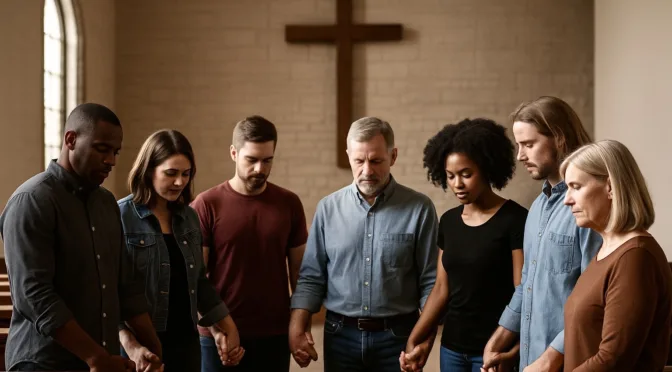Return to Him
The Eternal Creator Reigns — Return to Him. This is the call echoing across the earth in this hour. Our God, the Maker of heaven and earth, reigns with unchanging power and glory. He calls His people, the remnant, to return to Him — to forsake idols, to lay aside distractions, and to behold the beauty of His holiness once again. The Eternal Creator Reigns — Return to Him and find restoration for your soul.
In the beginning, God created the heavens and the earth (Genesis 1:1, NASB). By His Word, all things were made — the stars in their courses, the oceans in their bounds, the beasts of the field, and mankind in His image (Genesis 1:20; Psalm 33:6). He alone stretched out the heavens, laid the foundations of the earth, and calls the hosts of heaven by name (Isaiah 48:13; Job 26:7).
Today, the Spirit of the Lord speaks clearly: “Return.” Return, O remnant, to the One who formed you from the dust (Genesis 2:7). Return to the Creator who breathed life into your soul. “Remember your Creator in the days of your youth” (Ecclesiastes 12:1). “Return to Me, for I have redeemed you” (Isaiah 44:22).
The prophets cried out. The psalmists sang it. The apostles preached it. The Eternal Creator reigns, and He is calling His people back. His Word does not change (Malachi 3:6). His covenant stands sure. “The counsel of the LORD stands forever” (Psalm 33:11). He is the Alpha and the Omega, who was, and is, and is to come (Revelation 1:8).
O Church, return to the LORD who made you. Return to the One who forms the mountains and creates the wind (Amos 4:13). Return to the One who fills the heavens with His glory and the earth with His majesty (Isaiah 6:3). Return to the only true God, for He alone gives life and breath to all things (Acts 17:24-25).
Now lift your voice with holy fear and boldness:
You are awesome, O God of power, Lord of glory. Fill this place with Your manifest presence!
Let the weight of Your glory descend. Let every heart be stilled. Let every tongue confess: You alone are God. As You filled the tabernacle with the cloud and the temple with Your glory, so fill this house, fill this people, fill this hour.
Manifest Your presence, O LORD! Let Your power shake the heavens. Let Your glory fall as fire on the altar. Let us not merely know about You but behold You. Come, Ancient of Days, and let Your remnant arise — purified, humbled, burning with holy fire.
Declare it boldly, Church: The Eternal Creator reigns — and He calls us to return. This is the word for the season. Return to Him while He may be found. Seek Him while He is near (Isaiah 55:6).
Our God reigns — now and forever!
⸻
Prayer
O LORD, Ancient of Days, we hear Your call to return. You are the Eternal Creator, the Maker of heaven and earth, the One who was before all things and in whom all things hold together. We return to You — to Your holiness, to Your truth, to Your glory.
You are awesome, O God of power, Lord of glory. Fill this place with Your manifest presence. Let the fire of Your holiness fall. Let the remnant rise. Let the sleeping awaken. Draw us to Yourself with cords of love and make us vessels of Your glory in this generation.
Come and dwell among us, O King of Glory. Be enthroned in our praises. Be magnified in our midst.
In the mighty name of Yeshua HaMashiach, we pray. Amen.
⸻














